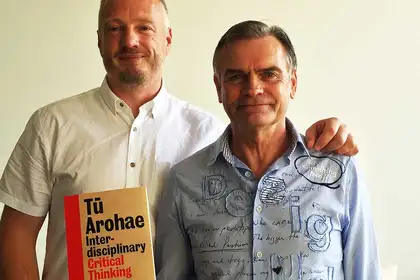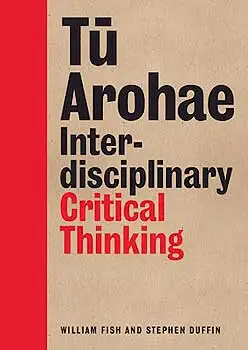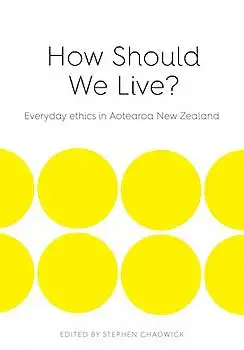
Professor Bill Fish and Steve Duffin at the launch of their philosophy book on critical thinking.
From choosing shampoo to who to vote for, we are constantly bombarded with reasons to believe in or do something. A new book on critical thinking is designed to help people develop the skills to navigate everything from marketing hype, fake news and dubious arguments, when forming a viewpoint or making a decision.
Everyone can benefit from a set of precision tools to use for evaluating reasoning, say Massey University philosophers, Professor Bill Fish and Steve Duffin, whose new book offers a handy critical-thinking toolbox for all areas of academic study, the workplace and daily life.
The Massey University Press book titled Tū Arohae: Interdisciplinary Critical Thinking, has been created primarily as a text for one of several new core papers in a refreshed Bachelor of Arts degree, in line with employers’ demands for graduates with strong critical thinking skills. It encompasses ideas about critical thinking from a range of perspectives across the humanities and social sciences.

Cover for Tū Arohae
The title of the just-launched book is a Māori phrase intended to convey the idea of ‘a rending or pulling apart of thought or reason’.
Professor Fish, of the School of Humanities at Massey’s Manawatū campus, says in the book there is a major difference between being critical – which can have negative connotations as synonymous with being “judgemental, nit-picking, disparaging and unsympathetic” – and critical thinking. The latter is about being “judicious and careful” in evaluating the reasons why people make particular claims, and about the use of reasoning, argument, plausibility and persuasion.
“When we look around the world today we see issues about global warming, wars, threats of wars, poverty, famines, genocide,” he says. “Some careful analysis of our situation is required. If we don’t think critically we end up with lunatics in positions of power. They win the masses over with charisma and propaganda rather than good reasoning based on well-founded claims.”
He and Mr Duffin note that; “most people are not taught how to think critically in a formal way, rather relying on gut instinct when they have to make decisions. We wanted to show a way, for those not familiar with critical thinking, to sift through the spin and this book provides a way to do that.”
Another philosophy book just published by Massey University Press is How Should We Live? – Everyday ethics in Aotearoa New Zealand, edited by Dr Stephen Chadwick, who teaches applied ethics in the School of Humanities.

Cover for How Should We Live?
The book, available from December, is concerned with practical ethics in a specific New Zealand context, and addresses some the moral dilemmas we frequently face in our everyday lives.
“Some [dilemmas] we face as individuals, such as: Should I be a vegetarian? Download copyrighted music? Use pornography? Have an abortion?” says Dr Chadwick. “Others we face collectively as members of society, such as how we should treat the environment, protect online data, deal with inequalities of wealth, or treat those who commit murder.
“Although these latter issues may seem more distant from our everyday lives, it is only through the actions of individuals that such collective decisions can be made. In New Zealand, which is a relatively free and democratic society, we are all able to affect the outcome of these ethical debates by raising public awareness and voting in elections. In doing so we can ensure that decisions are not simply made for us. By addressing all the topics included in this book it is hoped that it will help inform our ideas of how we should live both as individuals and as a society.
Philosophers from Massey as well the University of Auckland and Waikato University have written chapters on topics such as capital punishment, the treatment of animals, cyber-ethics, inequality, the environment, sex and intimacy, and war and peace.
For more on Tū Arohae: Interdisciplinary Critical Thinking: Ten Questions with Stephen Duffin and Bill Fish
For more on How to Live? Everyday ethics in Aotearoa New Zealand: Ten Questions with Steve Chadwick